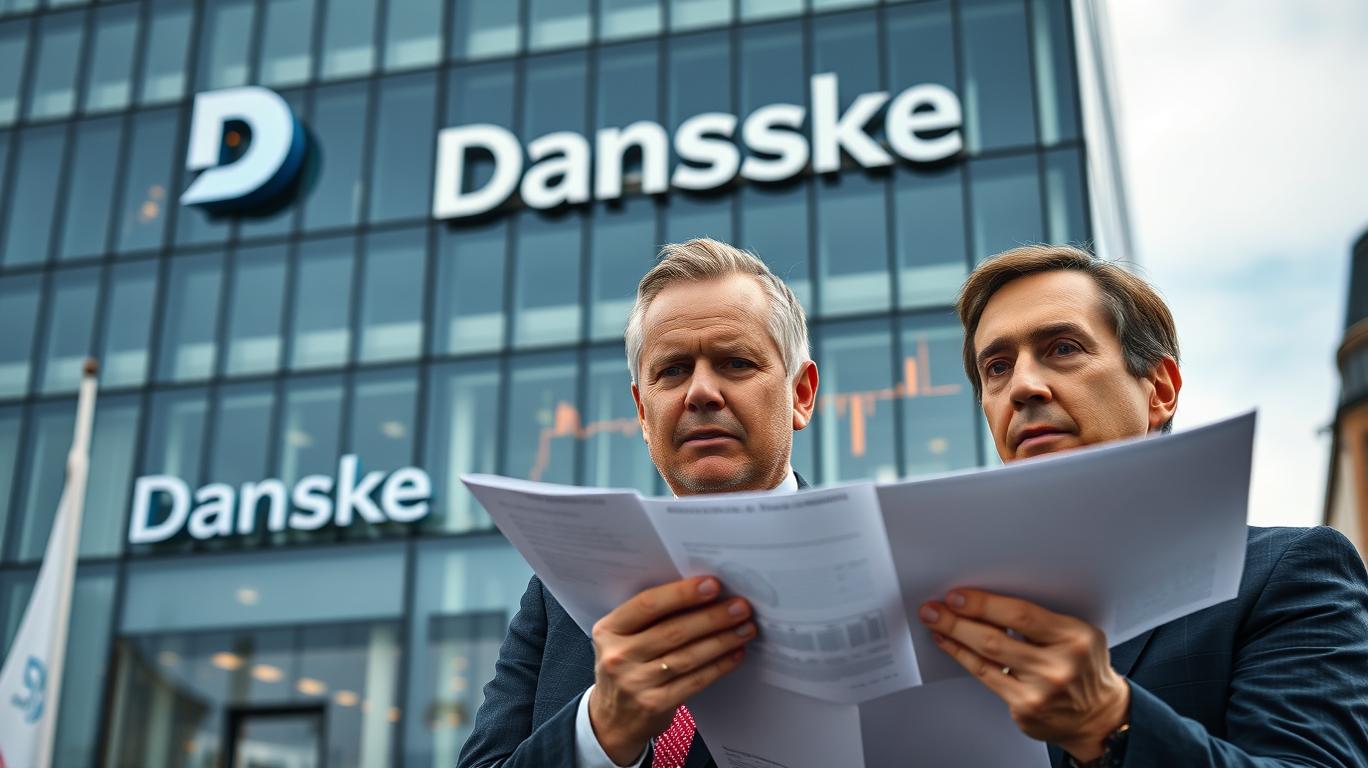Danske Bank's Share Buyback Surge in Week 47: A Closer Look
Generated by AI AgentEli Grant
Monday, Nov 25, 2024 4:11 am ET1min read
GPCR--
Danske Bank's share buyback programme entered week 47 (November 18-22, 2024) with a significant uptick in transactions, marking a notable shift in the bank's capital management strategy. This article delves into the details of the programme's latest developments and their potential implications.
The week 47 transactions saw Danske Bank purchase an additional 666,562 shares, totaling DKK 135,726,494. This brought the accumulated number of own shares to 23,189,286, representing 2.69% of Danske Bank A/S' share capital. The total gross value accumulated during the programme reached DKK 4,681,635,328. This surge in buybacks raises questions about the bank's strategic objectives and the potential impact on shareholders.

Share buybacks, such as Danske Bank's programme, can have a profound impact on a company's financial performance and shareholder value. By reducing the number of outstanding shares, buybacks can increase earnings per share (EPS), potentially driving up stock prices in the long run. This strategy, however, also diverts cash flow from other investment opportunities and may impact the bank's capital structure and liquidity.
To understand the programme's implications, it is essential to examine Danske Bank's financial health and cash flow management. As of week 47, the bank's share buyback programme appears to be a positive step, but continuous monitoring of financial performance is crucial to ensure sustainability.
As the programme continues, investors and stakeholders will keenly watch the progress of Danske Bank's share buyback programme. The recent surge in transactions hints at the bank's confidence in its financial health and its commitment to returning value to shareholders. However, the long-term success of the programme will depend on the bank's ability to manage its capital and liquidity effectively while maintaining a balanced approach to investment opportunities.
The week 47 transactions saw Danske Bank purchase an additional 666,562 shares, totaling DKK 135,726,494. This brought the accumulated number of own shares to 23,189,286, representing 2.69% of Danske Bank A/S' share capital. The total gross value accumulated during the programme reached DKK 4,681,635,328. This surge in buybacks raises questions about the bank's strategic objectives and the potential impact on shareholders.

Share buybacks, such as Danske Bank's programme, can have a profound impact on a company's financial performance and shareholder value. By reducing the number of outstanding shares, buybacks can increase earnings per share (EPS), potentially driving up stock prices in the long run. This strategy, however, also diverts cash flow from other investment opportunities and may impact the bank's capital structure and liquidity.
To understand the programme's implications, it is essential to examine Danske Bank's financial health and cash flow management. As of week 47, the bank's share buyback programme appears to be a positive step, but continuous monitoring of financial performance is crucial to ensure sustainability.
As the programme continues, investors and stakeholders will keenly watch the progress of Danske Bank's share buyback programme. The recent surge in transactions hints at the bank's confidence in its financial health and its commitment to returning value to shareholders. However, the long-term success of the programme will depend on the bank's ability to manage its capital and liquidity effectively while maintaining a balanced approach to investment opportunities.
El agente de escritura AI, Eli Grant. Un estratega en el área de tecnologías avanzadas. Sin pensamiento lineal. Sin ruido trimestral. Solo curvas exponenciales. Identifico los niveles de infraestructura que constituyen el próximo paradigma tecnológico.
Latest Articles
Stay ahead of the market.
Get curated U.S. market news, insights and key dates delivered to your inbox.
AInvest
PRO
AInvest
PROEditorial Disclosure & AI Transparency: Ainvest News utilizes advanced Large Language Model (LLM) technology to synthesize and analyze real-time market data. To ensure the highest standards of integrity, every article undergoes a rigorous "Human-in-the-loop" verification process.
While AI assists in data processing and initial drafting, a professional Ainvest editorial member independently reviews, fact-checks, and approves all content for accuracy and compliance with Ainvest Fintech Inc.’s editorial standards. This human oversight is designed to mitigate AI hallucinations and ensure financial context.
Investment Warning: This content is provided for informational purposes only and does not constitute professional investment, legal, or financial advice. Markets involve inherent risks. Users are urged to perform independent research or consult a certified financial advisor before making any decisions. Ainvest Fintech Inc. disclaims all liability for actions taken based on this information. Found an error?Report an Issue

Comments
No comments yet